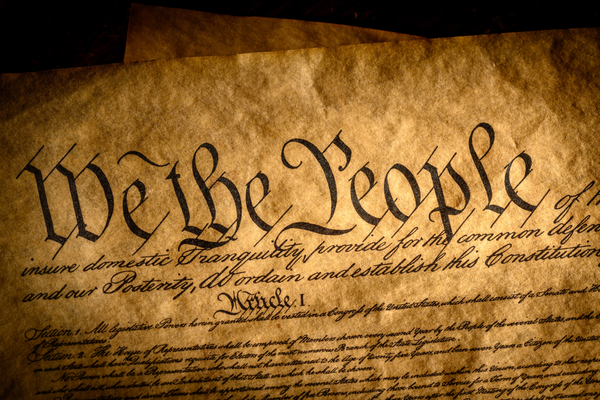The federal government is clearly out of control.
As of the end of 2016, 89,000 federal rules (laws and regulations) were on the books. Each and every one of those controls comes with a cost to society which ultimately must be borne by the private sector.
As if this weren’t enough of a burden, as of October of 2020 the United States had accrued over 27 trillion dollars in debt. Congress tosses around trillion-dollar spending bills like they’re party favors. When new spending is discussed (such as the COVID-19 relief bill), the argument is always, “Are we spending enough?” It’s never, “Are we spending too much?”
Conservative groups such as the Tea Party have tried to affect change electorally for years. They have sponsored small-government candidates to run against both Democrats and establishment Republicans.
Unfortunately, even with substantial success in electing small-government representatives and senators, growth of government influence has not appreciably slowed.
We’ve done some remodeling on the Titanic. We’ve even managed to seize the helm from time to time. But it’s still a fast-moving behemoth destined for a reckoning with an iceberg. Changing personnel has not righted the FBI. We were naïve to assume it would work any better in Congress. The past 12 years have surely taught us that the federal government will not correct itself.
Sun Tzu said, “Tactics without strategy is the noise before defeat.” Tactically we’ve become fairly successful at electing politicians. But has this all just been the “noise before defeat”?
Electing the right people is all well and good. But hope is not a strategy. Hoping that our politicians would fix government was never a winning bet.
Perhaps it’s time to try something other than electoral politics. Maybe it’s time to try a constitutional strategy to rein in government. The first clause of Article V of the Constitution describes how Congress may initiate an amendment. However, the seldom-discussed second clause empowers the states to initiate the amendment process by calling a convention of states.
Via this instrument, the states may circumvent a recalcitrant Congress to implement constitutional constraints on the federal government. While the second clause has never been used, it remains a valid method to amend the Constitution.
As one might imagine, large states, big-government politicians, and elitist advocacy groups are vehemently opposed to an Article V convention of states. In fact, the Soros backed Common Cause policy group has assembled a coalition of over 200 groups to lobby against such a convention.
They are so frightened by a convention that they have embarked on a massive disinformation campaign. They are promoting the notion that a convention of states will morph into a runaway constitutional convention–jeopardizing our civil liberties–and perhaps even destroying programs such as Medicare and Social Security.
However, pay attention to their “tell.” They’re afraid of it, because it may actually work.
Prof. Robert Natelson, a Senior Fellow in Constitutional Jurisprudence, has written numerous works on the Constitution, including the book the Law of Article V. In his book he cites numerous historical documents and court decisions to dispel the “runaway convention” fears that Common Cause is promoting.
Prof. Natelson describes numerous safeguards that will prevent a runaway convention, most of which are based on the fact that the states–not Congress–remain in control throughout the process.
An Article V convention seems like a difficult method to rein in government, because it is.However, 15 states have already passed resolutions to call an Article V convention of states to address:
- Fiscal responsibility
- Government overreach
- Term limits
At least 20 additional states are currently working on resolutions for these same topics. Clearly the states have had enough and are ready to show the federal government who works for whom.
Convention of States opponents often claim that Justice Scalia was opposed to such a convention. He was not. In the quote that opponents often cite, he was opposed to a rewrite of the Constitution, just as all conservatives are.
However, on the subject of an Article V convention of states, Scalia said:
"I do not have a lack of trust in the American people. I am the one here who is least terrified of a convention. The one remedy specifically provided for in the Constitution is the amendment process that bypasses Congress. I would like to see that amendment process used just once. I do not much care what it is used for the first time, but using it once will exert an enormous influence on both the Congress and the Supreme Court."
It's clear that a convention of states scares the left. So, let me ask this: if Soros backed groups are against it and Justice Scalia was for it, what else do conservatives need to get behind it?


